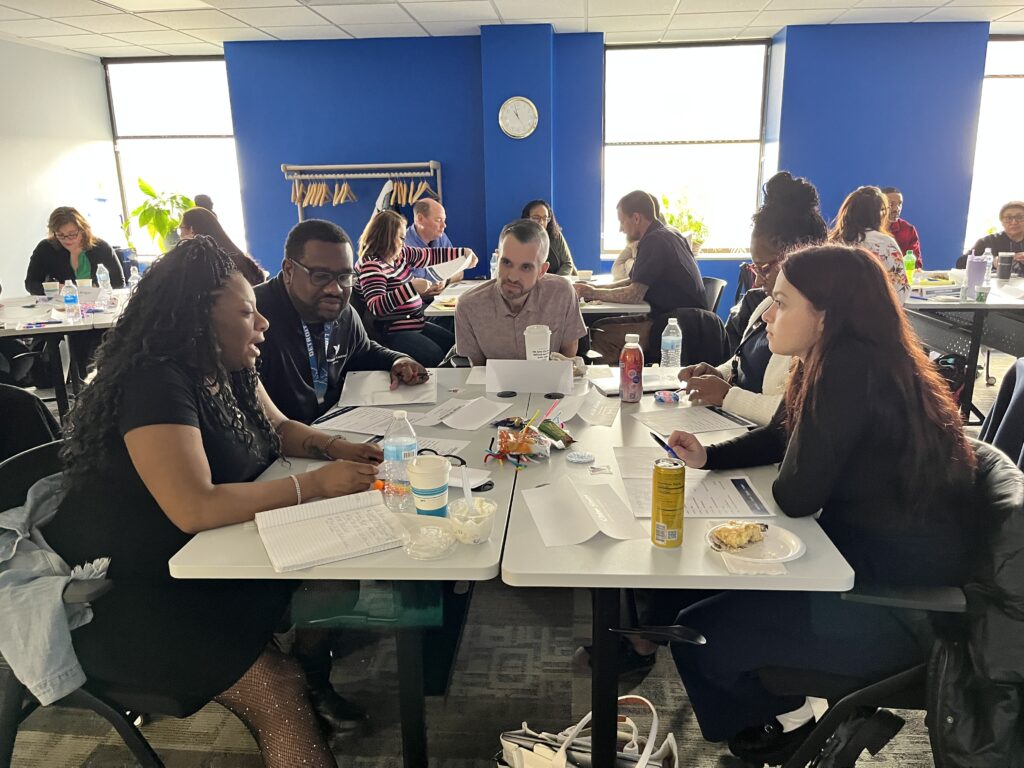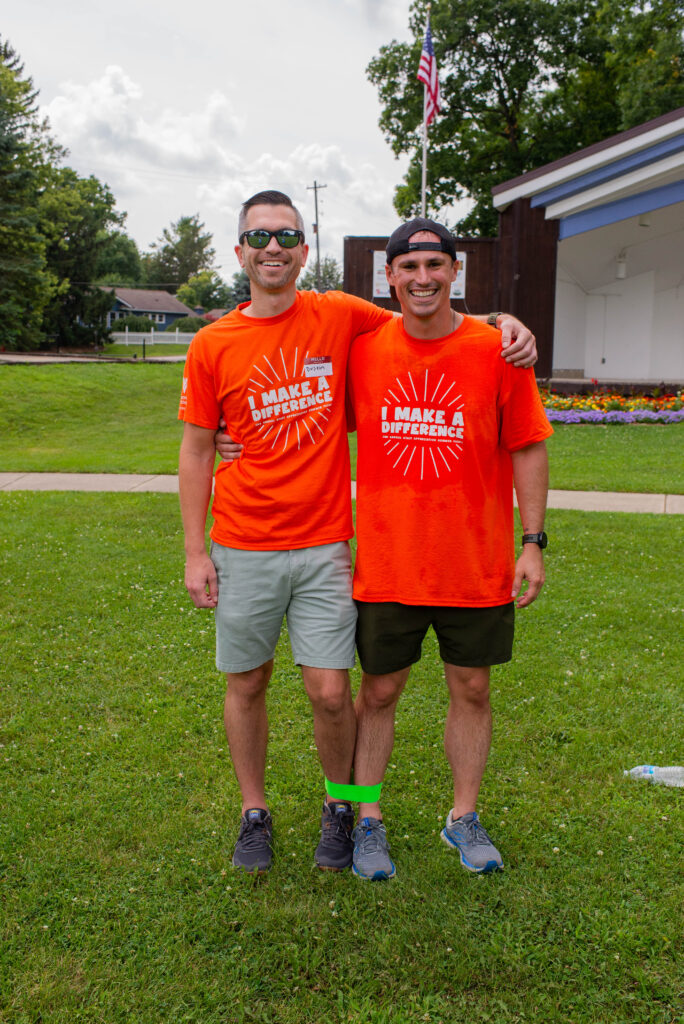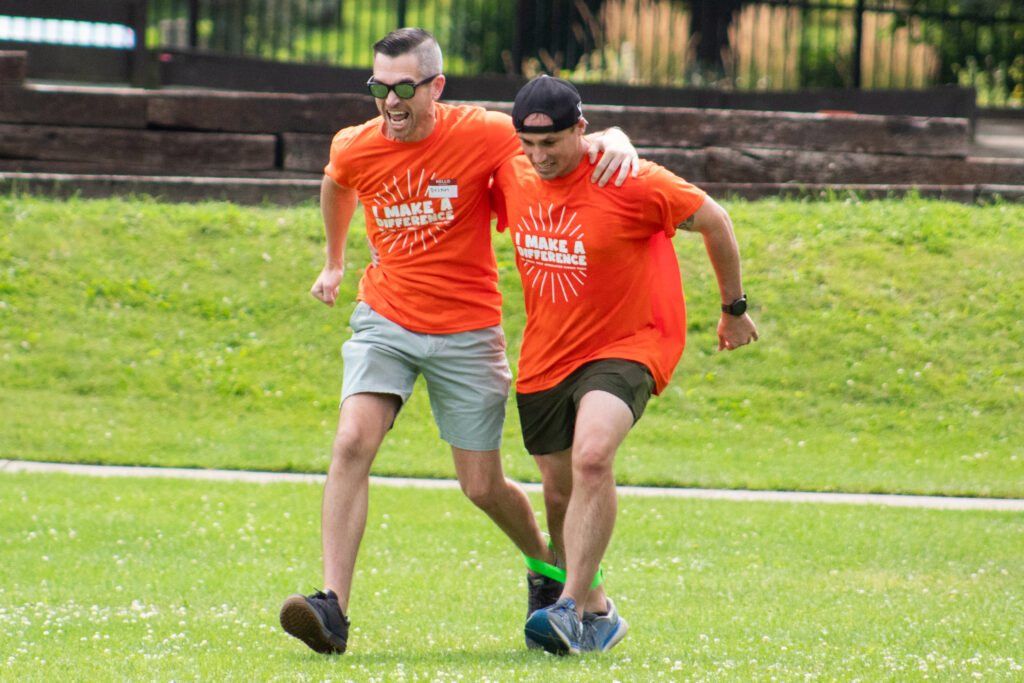SERV Assistant Program Manager

“It means the world. Helping others helps me on my own journey.”
Dustin Curtis, SERV Assistant Program Manager
What brought you to VOAMI? The chance to work with veterans at risk of suicide.
How long have you worked with VOAMI? It will be 2 years this March.
What is your biggest takeaway from your job? Many are struggling but with a little support they can accomplish anything.
What does it mean to you to be helping others? It means the world. Helping others helps me on my own journey.
What is your biggest challenge? Taking work home with me.
What is the best piece of advice you’ve been given? Be humble. Slow down. If nobody can talk to you, how are you going to learn anything new?
What is your favorite color? Orange
Where is your ideal vacation spot? Our family cabin up north.
What is your favorite book? The Bible
What fills your time outside of work? Running, cooking, traveling, and camping.
Who is your hero? Why? I look up to my dad. His strong work ethic, dedication to family, and the respect he shows others rubs off on people.
What Branch did you serve in? United States Marine Corps
How long did you serve? 2006-2013
What was your rank? Corporal
What was your job in the military? Engineer
Here is Dustin’s story…
Dustin Curtis, a former Marine and member of the Army Reserves, now draws from his past experiences in his role as a Certified Peer Support Specialist for the SERV (Suicide Prevention and Referral for Veterans) program at Volunteers of America Michigan.
Dustin’s military career began after a bad breakup led to a brash decision to join the military and get out of town. That quick decision paid off, as he describes his time in the military as “one the best times of his life.” He developed a great bond with his fellow Marines on deployments to Djibouti, Africa and Afghanistan. When those deployments ended, he sought a similar camaraderie in the Army Reserves but felt it wasn’t quite the same.
A feeling of isolation overcame him, and he turned to alcohol to dull the pain. In 2017, Dustin attempted suicide by an opioid overdose that nearly took his life. He explains, “It took six Narcan to bring me back; I woke up in the hospital not knowing what was going on.” That experience was a wake-up call for Dustin; he says, “I remember being in the ambulance, not wanting to die.”
After his suicide attempt and near-death experience, he began a journey of improving his mental health. Dustin says he feels he is still recovering. “It is a constant battle, but I have a lot of different coping skills now.” He has found a love for running and competes in ultra marathons to keep his mind at ease. He credits his role at VOA to his continuing to improve his mental health, too.
Dustin is thankful for working at VOA because he is able to draw on all that he has been through to help other veterans going through similar struggles. Dustin feels that Peer Support Specialists, a veteran who has had suicidal thoughts or an attempt in the past is a pivotal part of the program. He says, “They (other veterans) feel like they are talking to someone who gets what they are going through; they open up more than they may with a doctor or a case manager. The SERV program is another layer of mental health support, even if you are seeing a therapist, this is an extra layer to aid in your mental health journey. We can get you in quick(ly) and help you now.” He concludes by saying, “I want veterans to know that it does get better, with time and effort.”
If you are struggling or know a veteran that is struggling the Veterans Crisis Line is available to help. Dial 988 then PRESS 1. For non-emergency assistance contact Volunteers of America Michigan by calling 877-509-VETS.
YOU can help veterans like Dustin right now!



